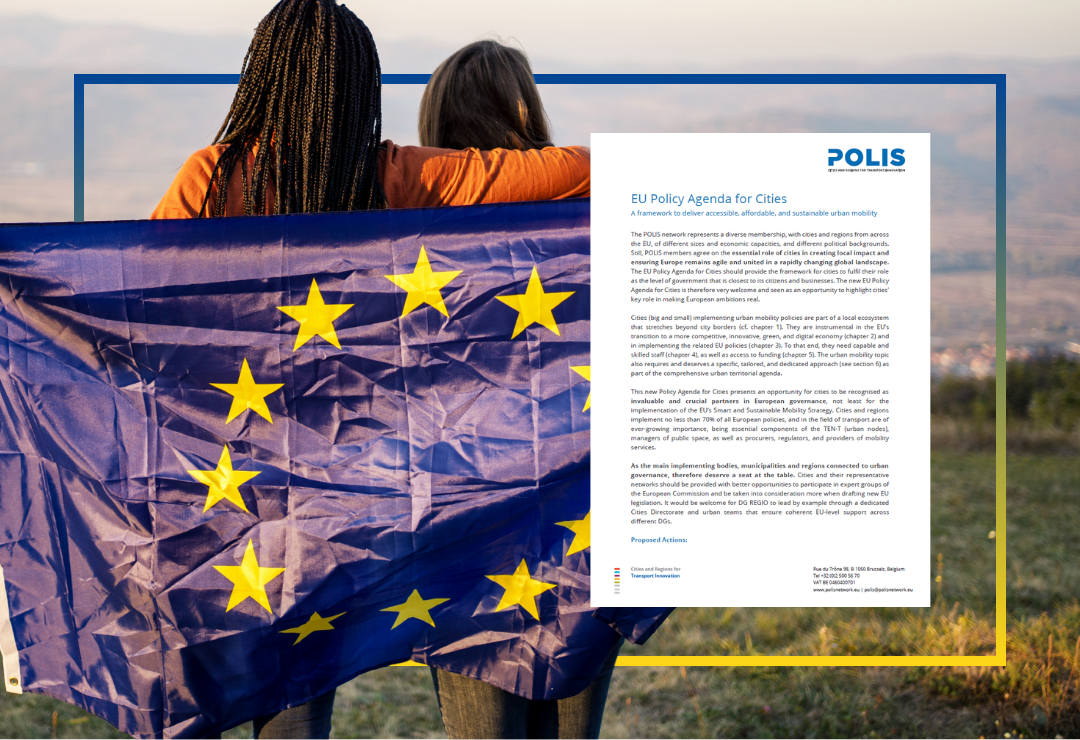POLIS submits position on EU Policy Agenda for Cities
POLIS has submitted a position document to DG REGIO to help shape the upcoming EU Policy Agenda for Cities—a key initiative to streamline EU support for urban areas and better align policies with local realities.
Drawing from the experiences of our cities and regions, we at POLIS call for a stronger recognition of urban mobility as a core pillar of Europe’s competitiveness, climate resilience, and digital transition.
This input complements the broader contributions of the Local Alliance on EU funding, governance, and multi-level cooperation.
Our recommendations at a glance
The new Agenda is expected to clarify how EU instruments—from funding to regulation—can better serve cities. For POLIS, this is a critical opportunity to ensure that the cities driving Europe’s mobility transformation are fully equipped and empowered.
Cities and regions are already implementing over 70% of EU legislation—yet their involvement in shaping these laws and policies remains inconsistent. This Agenda is a chance to formalise their role and streamline the tools they need to succeed.
For this reason, we believe that:
- Urban mobility must be recognised as a strategic, standalone policy field within the EU Policy Agenda for Cities—with dedicated teams, instruments, and funding streams across DGs.
- The Agenda must be implemented with cities, not just for them—through stronger multi-level governance, formal recognition in policymaking, and a reinforced partnership principle that supports collaboration across all levels.
- EU support should prioritise resilient and future-proof mobility systems, backed by tools that help cities meet EU legislative goals (e.g. Trans-European Transport Network - TEN-T, Alternative Fuels Infrastructure Regulation - AFIR, Intelligent Transport Systems - ITS), adapt to climate and systemic shocks, and scale policy-driven innovation.
- A unified EU capacity-building framework is needed to support municipal staff recruitment, peer learning, and the upskilling of professionals in urban mobility—especially in smaller and less-resourced cities.
- Cities must have direct, reliable access to EU and private financing—including urban mobility components in national plans, simplified project procedures, and increased use of technical assistance tools like ELENA.
- The EU Competitiveness Fund should be co-designed with cities, with funding linked to real local needs—supporting testbeds, sandboxes, public procurement pilots, and urban mobility innovation ecosystems.
Our position stresses that cities are not just implementing partners—they are active innovators and enablers of the digital, green, and competitive transitions. Taking this position, POLIS reaffirms its role as a bridge between local realities and European ambitions, working to ensure that cities are empowered, not sidelined, in shaping the future of sustainable urban mobility.
Read the full POLIS position document HERE
For more information, contact Ivo Cré at icre@polisnetwork.eu.
